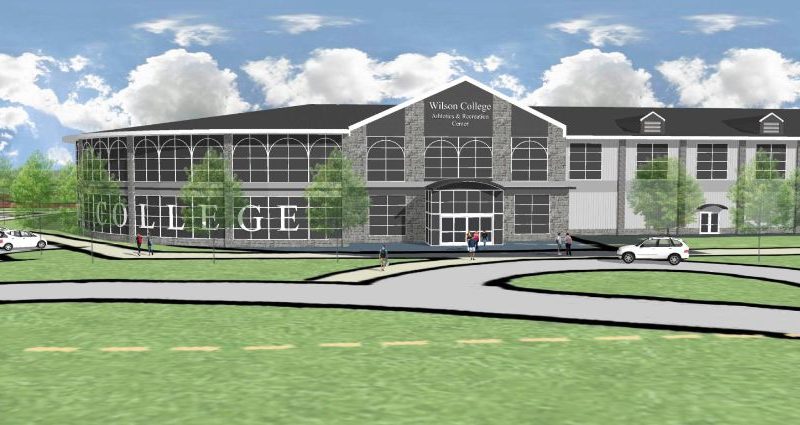College Looks to Improve Athletics Facilities while Maintaining Certification of Fulton Farm
Wilson College has been engaged in talks with the Fulton Farm on how to go about progressing with what Wilson College Assistant Athletics Director for Athletics and Recreation Management, Caleb Davis, calls “a significant need” for a new athletic facility.
The plans for the new athletic facility include a two floor multipurpose area. The first floor would include a competition court, multiple practice courts, team rooms, the trainer’s room, and a weight room. The second floor would include another gym with a track, more practice courts, classrooms, a cardio fitness room, and a bullpen.
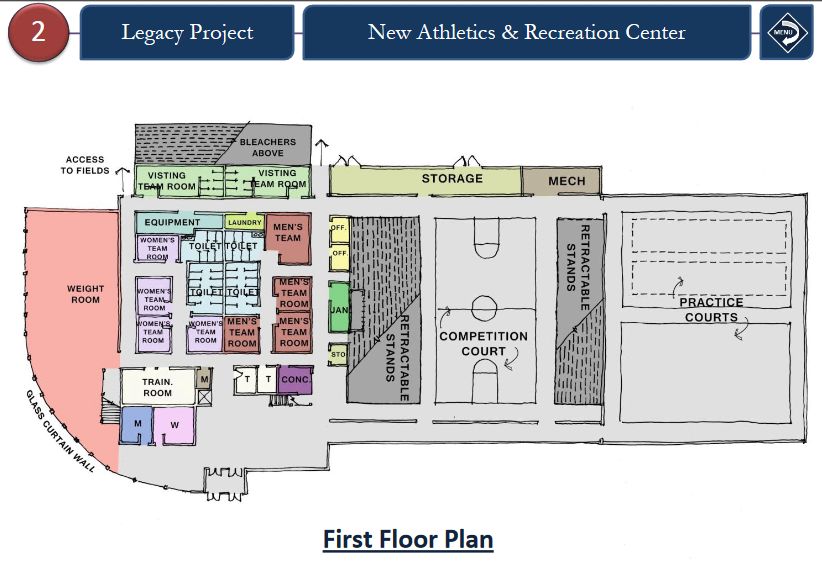
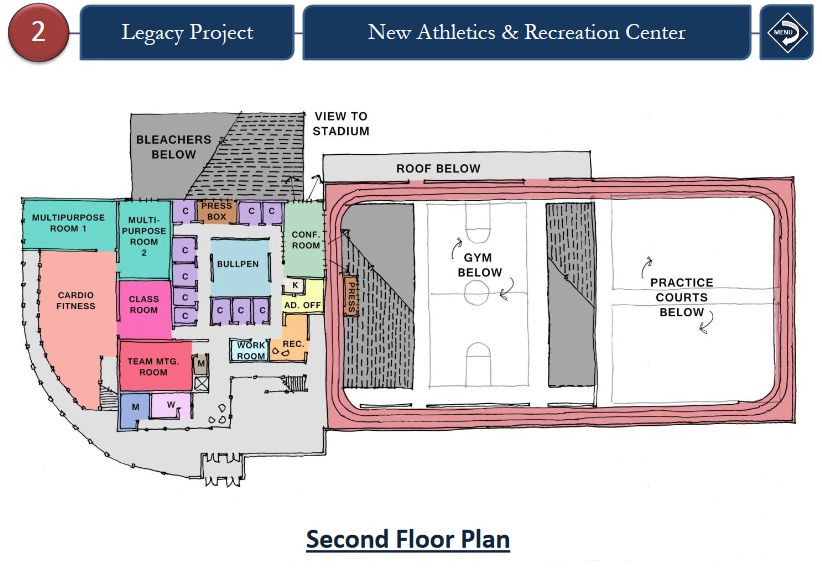
The facility would accommodate all Wilson College sports teams and would be beneficial to the progress of Wilson College athletics.
According to Davis, “The facility would significantly help with recruiting. It would help sell the school a little better. It would also help with student rec overall. Student recreation as a whole would increase and the new facility would give students a place to go and burn off some energy.”
Coaches have been pleading for a new facility to help with recruiting and enhance the overall performance and abilities of players and coaches.
“Walking into a brand new athletic center will be much more impactful to a recruit considering our basketball program than our current facility,” said Wilson College Head Men’s Basketball Coach Brain Zoeller. He added that “as much as [he] love[s] playing in Gannet Memorial Field House, it does have a negative impact on recruiting.”
The new facility would not only benefit student athletes, but also the general student public.
“The other obvious benefit is that a new facility would provide indoor recreational space for our students, something that is sorely lacking right now,” said Zoeller.
The building is estimated to cost between $16.5 and $18 million while the infrastructure is estimated to cost between $2.5 and $3.5 million. The facility would also be approximately 83,000 square feet.
However, while the plans for the new facility would cover the needs of the growing athletics program, it would more than likely have negative impacts on the Fulton Farm.
The Fulton Farm is an environmental educational facility and a working produce farm within the 50 acre property of the Fulton Center for Sustainable Studies. The Farm has recently become organically certified which poses a road block in the plans to construct a new athletic facility.
“The Fulton Farm is USDA certified organic. To gain certification, an organic farm must be operated according to USDA standards for at least three years before it can be certified. If new land is farmed, it will thus take at least three years for it to be certified,” said Dr. Edward Wells, an environmental science professor at Wilson College.
The plans to construct a new athletic facility on part of the farm would derail the efforts the Fulton Farm has put in to become USDA certified organic. It would also impact programs that students and faculty participate in during the school year and over the summer.
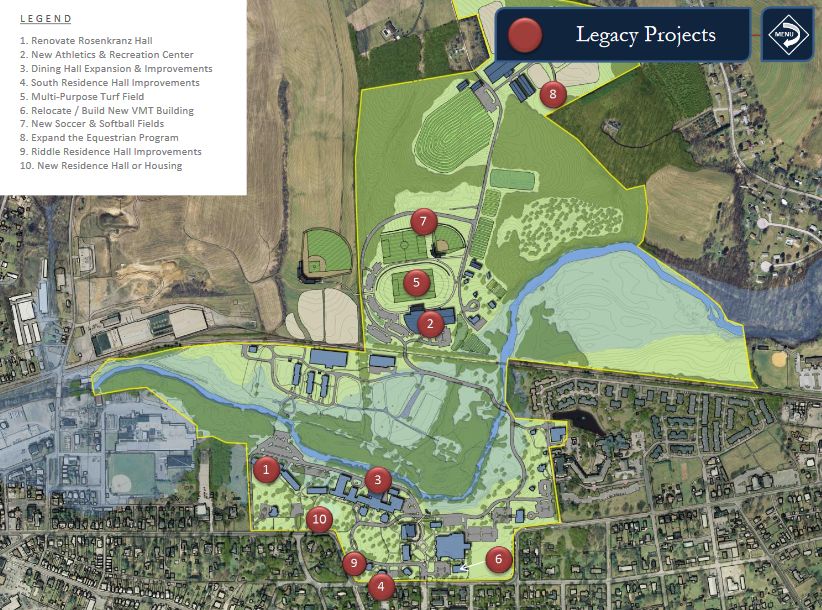
“This not only affects our CSA, but also impacts the research we do with the USDA over the summer. A farm has to have organic certification for us to conduct the experiments that we do over the summer. If we lose that certification, our farm will no longer be eligible for at least three years. This impacts student and facility researchers as well as the ongoing collaboration that we maintain with the USDA,” said Wells.
Davis admits that moving forward with plans to construct a new athletic facility on part of the Fulton Farm would come with challenges.
“Part of where we would want to put the athletic facility would take a chunk of the Fulton Farm land which is an issue because they would have to move their farm land, which is certified organic farmland and takes a number of years to achieve, so they would have to possibly move that soil to a new location,” said Davis.
“I don’t see how they would not have negative impacts” said Wells. “Two land uses cannot occupy the same piece of land. If the facility is moved to the farmland, where will the farmland go?”
If the athletic facility was scheduled to be built on part of the farmland, that part of the farmland would have to be relocated. This would take time, planning, and a lot of effort.
“Because they would have to find a new location to move that portion of the farm, it could take some time depending on how they would have to move the soil. That just adds time to the project,” said Davis.
However, the issue with the Fulton Farm is not the only obstacle in the project.
“There are a couple other roadblocks,” said Davis. “The bridges need to be replaced because we can’t get coach buses across them. Then, when you get across the bridges, buses can’t get under the little bridge which is our issue now for softball and soccer. Once we replace the bridges we have to find a way to get up and over the railroad tracks which has been another road block trying to work with the railroad company too, to try and get up and over the railroad tracks to get where we want to build the facility.”
The current fieldhouse at Wilson College, which hosts basketball and volleyball games as wells as indoor practices for sports such as softball, soccer, and field hockey, is outdated, small, and in need of a major upgrade.

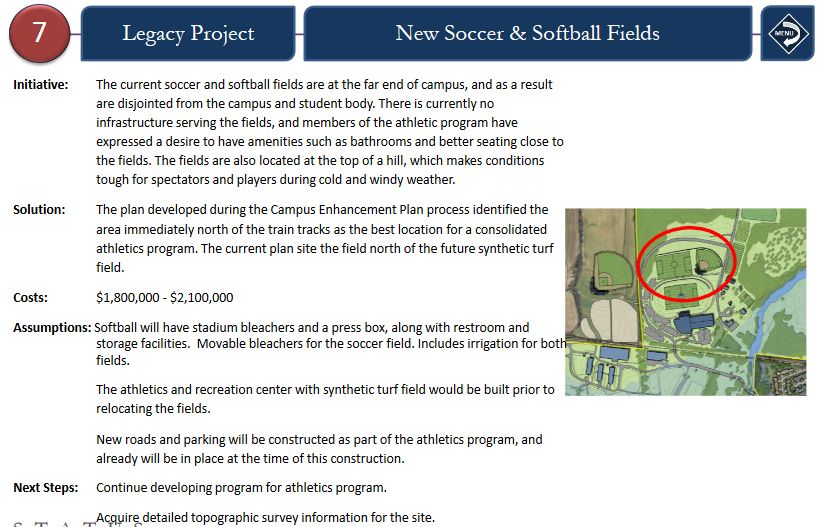
“I know some of our coaches are maxed out in the space that they are in with the number of athletes they have on their team. It doesn’t allow them to do the things they want to do in terms of practice. The need to increase the size of our facility is big,” said Davis.
Coach Zoeller agrees, but understands the difficulties involved.
“I would love to see a new athletic center within the next three years, but I understand there are a host of reasons that may not be possible. At this point, I’m not sure when we can plan on a new facility, but we can hope,” said Zoeller.
To improve Wilson College athletics, building a new athletic facility is at the top of the list. However, when Davis was asked if the athletic department was looking at a certain timetable for the facility, he simply answered, “No.”
There is no doubt that Wilson College is in major need of a new athletic facility to complement its student athletes, but there is also an argument the farm has that making the farm move its farmland for athletics is prioritizing athletics over the farm.
At this time there is no back up plan if talks with the farm fall through and the construction of the new facility cannot move forward. For now, the Fulton Farm remains a priority according to Davis.
There are limited, if any, other possible locations on campus for a new athletic facility and during the campus enhancement plan process, the current farm fields on the north side of campus were identified as the ideal location to expand athletics on the campus.
Wells said that “there is much more information [he] would need to know” before considering alternative locations.
“For example, what other sites are under consideration, what are the pros and cons for those sites, how much will the facility require, and how do different stakeholder groups feel about each option,” Wells said.
One thing is certain: if Wilson College wants to keep up with other athletic programs in the area, a new athletic facility needs to be constructed as soon as possible.

